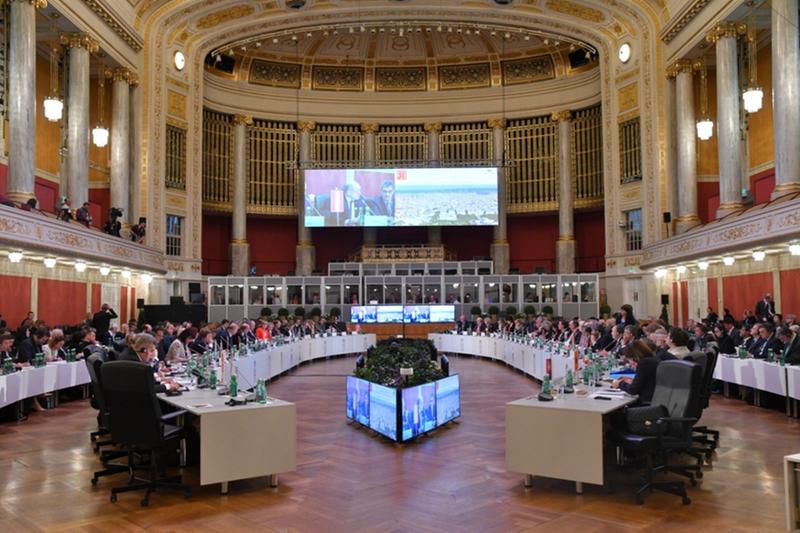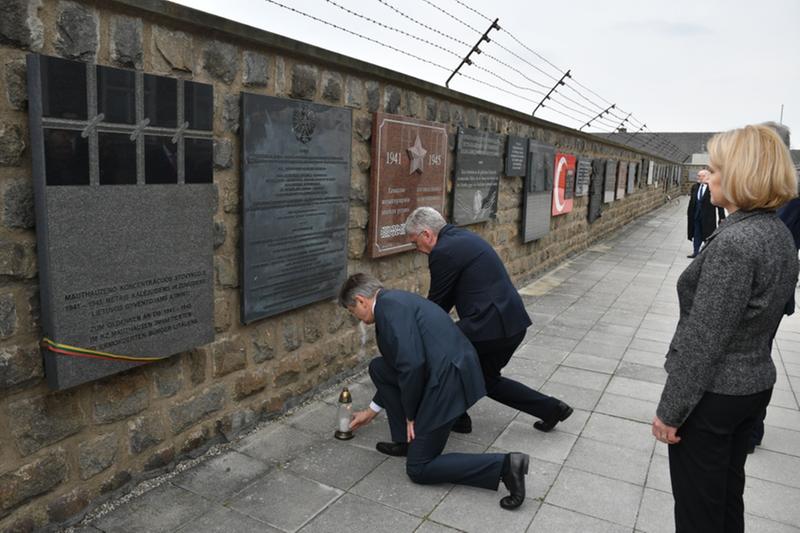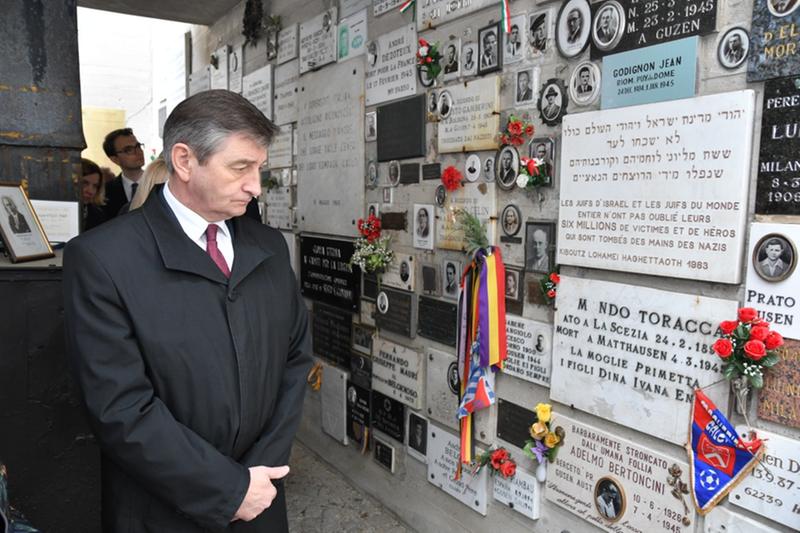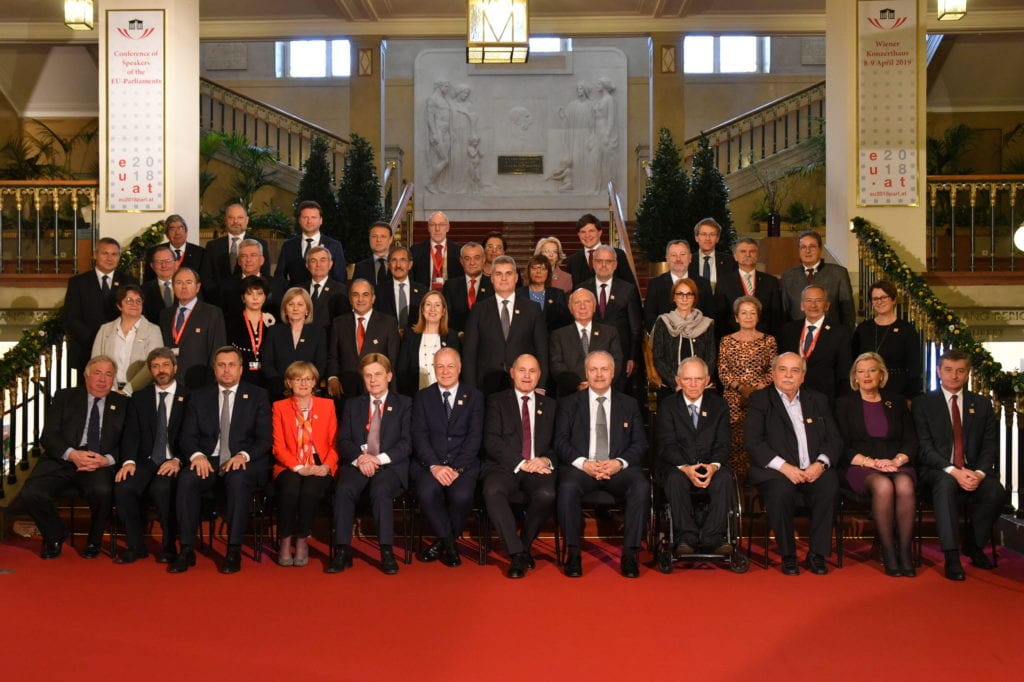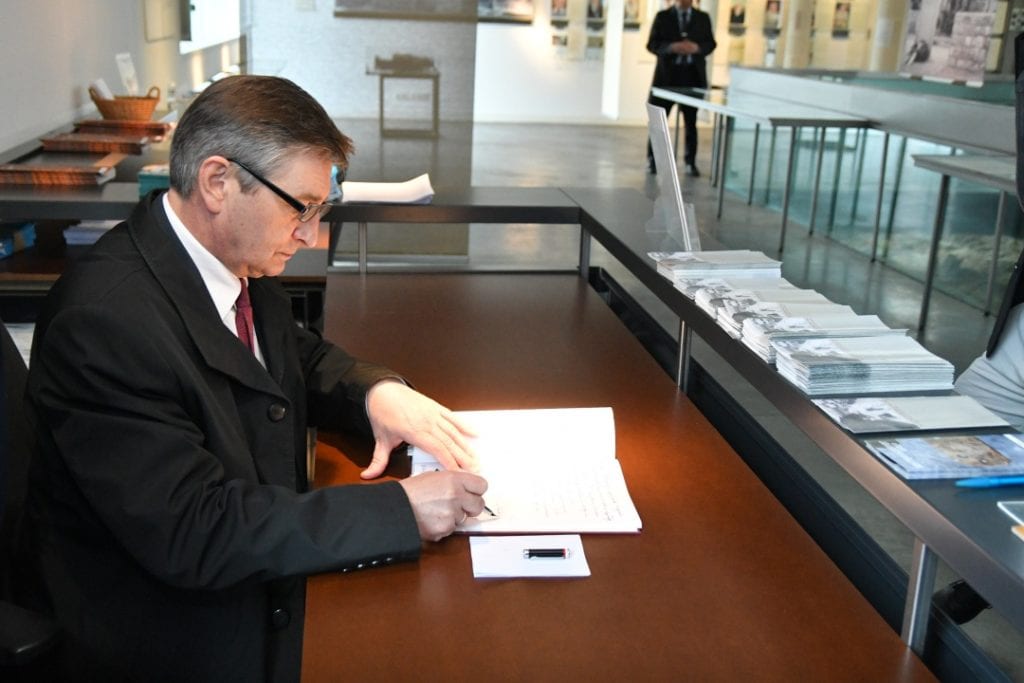The European Union's relations with its neighbors, the May elections to the European Parliament, and the cooperation of national parliaments and European institutions are the main topics of the Conference of Speakers of the European Union Parliaments, which began Monday in Vienna. The Polish parliament in the Austrian capital is represented by Sejm and Senate Speakers Marek Kuchcinski and Stanislaw Karczewski. The conference is an annual forum for exchanging views on the tasks of national parliaments in the European structure, inter-parliamentary cooperation on EU matters and the challenges facing the Community.
The discussion opened with speeches by Wolfgang Sobotka, President of the Austrian National Council, and Ingo Appé, President of the Austrian Federal Council. President Appé spoke of the need for cooperation in the face of the challenges facing the Community. - These are turbulent times for the European Union. Mainly because of Brexit, but also because of other issues such as climate change and migration. Solutions can only be found if we have an inter-parliamentary dialogue," he stressed. Wolfgang Sobotka, in turn, drew attention to the importance of the Western Balkans for the European Union. - Their rapprochement with the Community brings a lasting effect of stability. In turn, national parliaments play an important role in the pre-accession process, he said. Mairead McGuinness also spoke at the opening of the session. Among other things, the EP First Vice President spoke about the importance of the upcoming Europarliamentary elections and stressed the importance of involving national parliaments in the electoral process.
- This is a strong expectation of all countries: the spirit of Europe must be lifted so that the Union can strengthen its cooperation," the Speaker of the Sejm told reporters at the break of the Conference. Marek Kuchcinski added that during the discussion, politicians paid attention to unity and diversity as a source of strength for the Union's member states. He also stressed that Poland takes an active part in building good relations in the region in various formats, including the Visegrad Group, the Eastern Partnership, Carpathian Europe, the Bucharest Agreement, and the Trilateral.
Monday's part of the Conference was primarily an opportunity to debate the European Union neighborhood. Andrej Danko, President of the National Council of the Slovak Republic, emphasized the importance of the Western Balkans' integration with the EU in this part of the session. One of the main topics of his speech was also the security of Europe. - We must start looking at this issue comprehensively, and the Union must play a significant role here, the Slovak politician noted. Bringing the Balkan countries closer to the Union was also considered a priority by Nikos Voutsis, President of the Greek Parliament. In turn, President of the Italian Chamber of Deputies Robert Fico accentuated the problem of migration, saying that EU countries must cooperate on this issue. He also drew attention to the need for cooperation in controlling the Community's external borders. The Speaker of the Senate also spoke in the debate. Stanislaw Karczewski said that creating the prospect of membership for neighboring nations is the most effective instrument of the Union's influence on its surroundings.
On the sidelines of the first day of the parliamentary summit, Marek Kuchcinski held a bilateral meeting with Viktoras Pranckietis, Chairman of the Seimas of the Republic of Lithuania. The conversation concerned joint celebrations of important historical anniversaries, including the 450th anniversary of the signing of the Union of Lublin.
The meeting continues on Tuesday. The presidents of EU parliaments will discuss the May EP elections and the development of cooperation between national parliaments and European institutions. Speaker of the Sejm Marek Kuchcinski will be one of the main speakers at this part of the conference. In addition to him, Wolfgang Schäuble, President of the German Bundestag, Ankie Broekers-Knol, President of the Dutch Senate, and Gérard Larcher, President of the French Senate, will speak. Further bilateral meetings between the Speaker of the Sejm and the presidents of European parliaments are also scheduled.
Before arriving in Vienna, the Polish delegation visited the memorials at the Mauthausen-Gusen complex of former German Nazi concentration camps. At the mausoleum of KZ Gusen, the remains of the crematorium where more than 37,000 people died during World War II, the marchers laid flowers and inscribed themselves in the memorial book. "Deeply moved by the enormity of the tragedy that took place at the Gusen death camp, I pay tribute to all the victims, including the thousands of Poles who lost their lives there," Marek Kuchcinski wrote. The Speaker of the Sejm, in a conversation with the media, stressed in turn that it is important for Poland and the world to remember the Gusen KZ. - This is a second Katyn for Poland and for other nationalities, not only from Europe," he said.
Afterwards, Marek Kuchcinski and Stanislaw Karczewski laid flowers in front of the memorial to Polish prisoners who perished in the Bergkristall drifts and in front of the monument to the Polish victims of Mauthausen Concentration Camp. They also lit candles in front of plaques dedicated to Polish scouts, Polish doctors and Henryk Slawik, who died in the camp in 1944 and earlier, together with his co-workers, saved many Poles and Jews from death in Hungary.
Between 1940 and 1945, Poles were the largest group among the inmates of the Mauthausen-Gusen complex of former German Nazi concentration camps. Mauthausen-Gusen Concentration Camp was called a "betting camp for the Polish intelligentsia" because it housed, among others, people arrested as part of the Intelligenzaktion, the planned genocide carried out by the Germans against Polish elites from the lands of the Second Polish Republic incorporated into the Reich.
CIS
Photo: Lukasz Blasikiewicz


